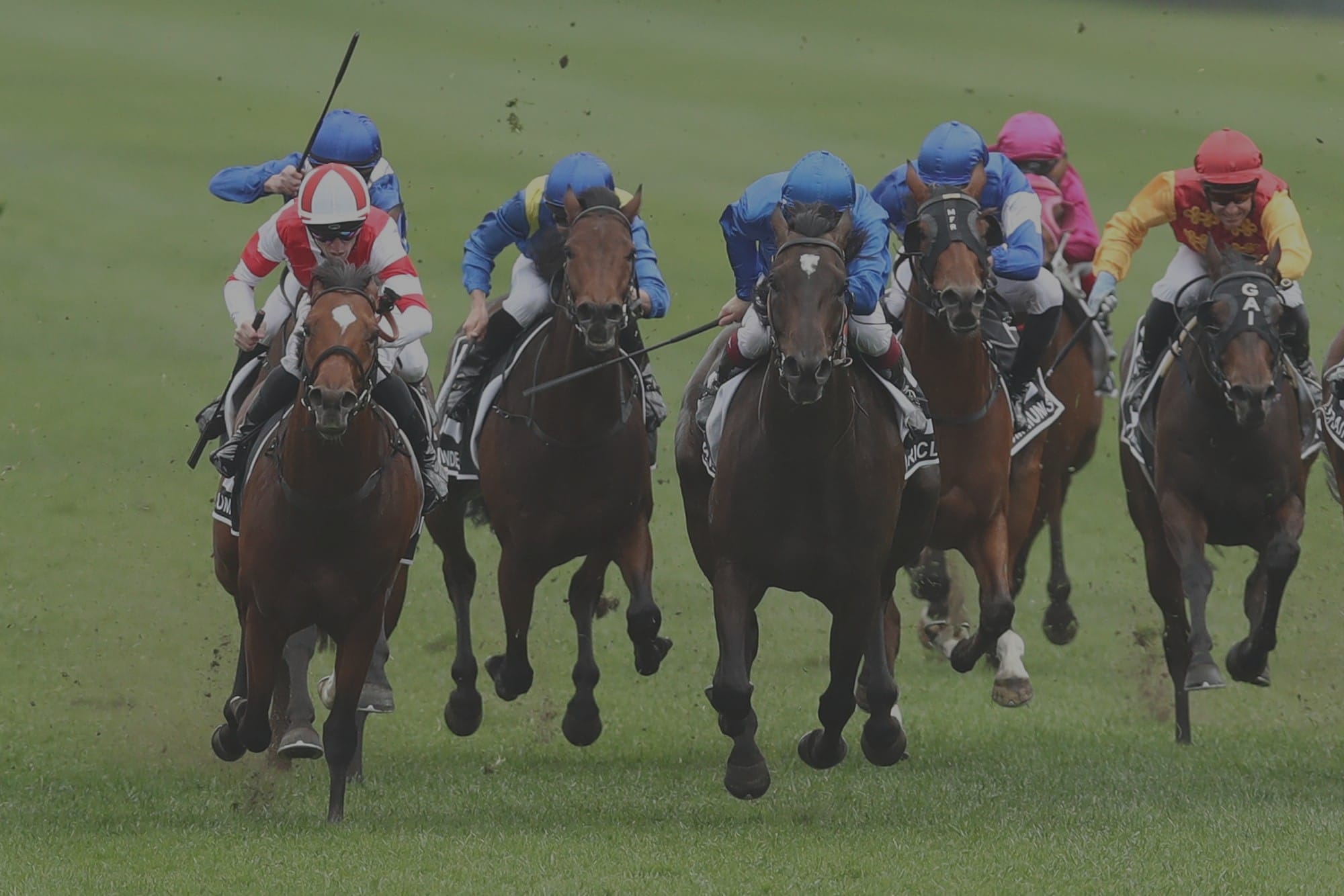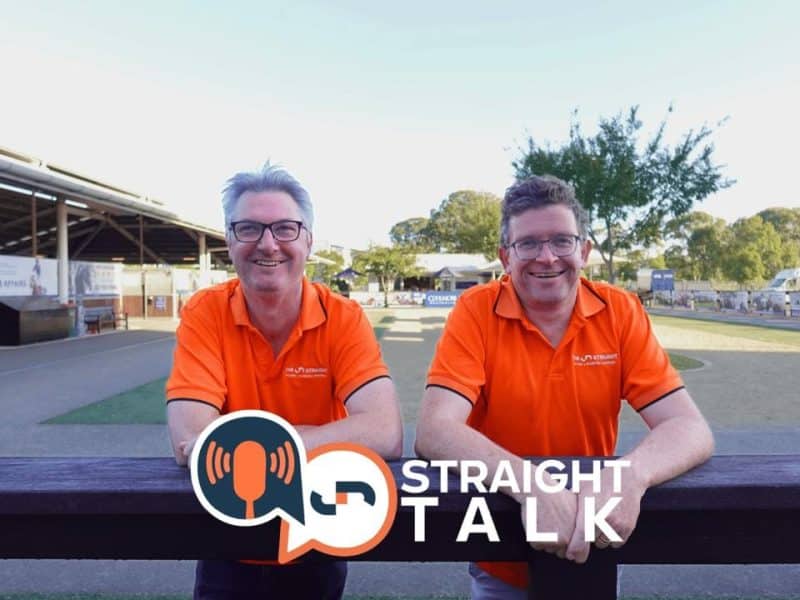Morrison on message, now for the execution
Aaron Morrison has made all the right noises early in his time as Racing Victoria’s CEO, knowing he needs everyone pulling the same way to battle the headwinds the Victorian industry is confronting. He sat down with The Straight’s Bren O’Brien for an extensive interview.
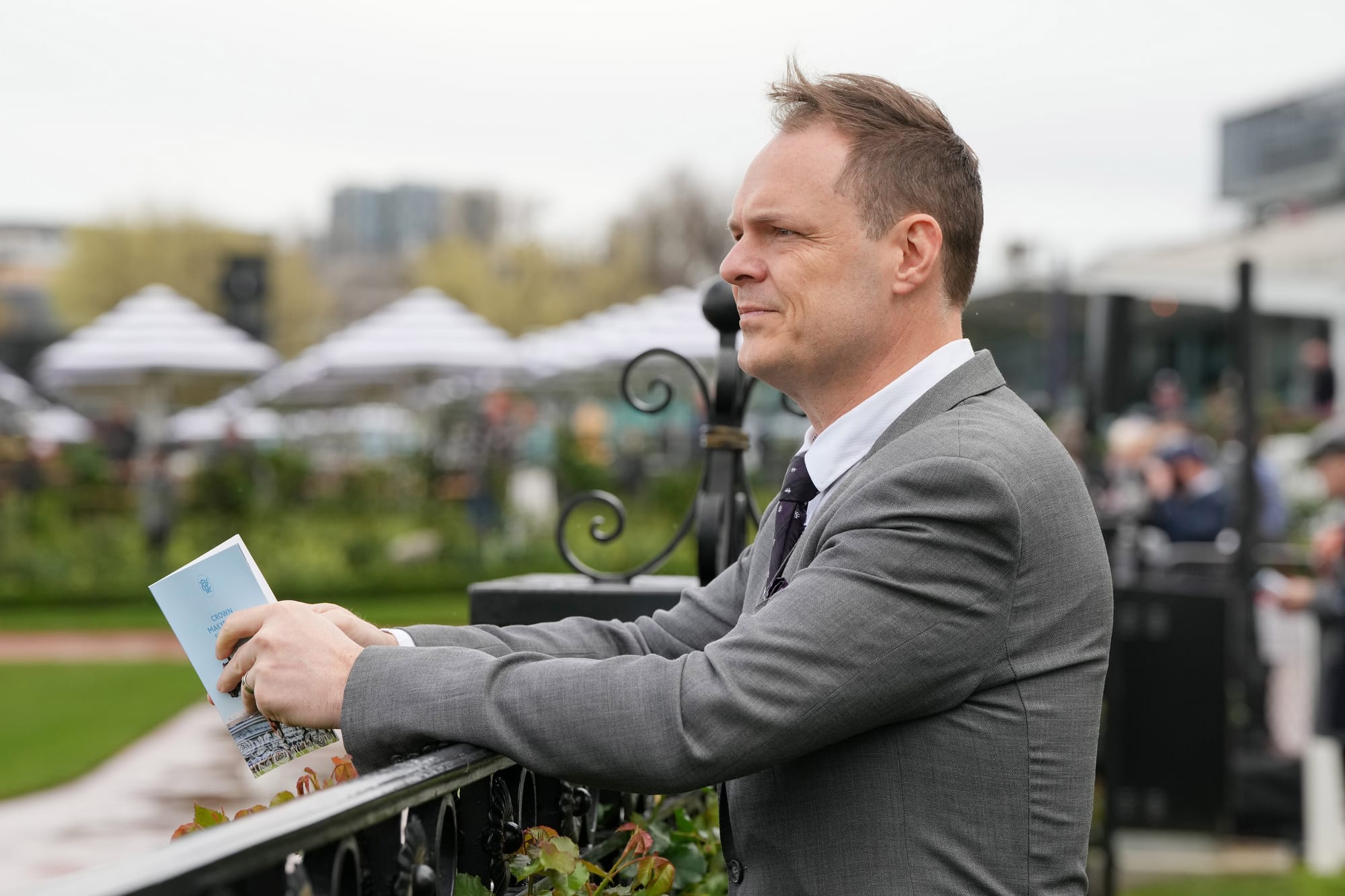
Aaron Morrison still carries the manner of a newly elected politician.
Less than a month after he was announced as the new chief executive officer of Racing Victoria, Morrison is echoing many of the campaign slogans which got him over the line and into the job that he had held on an interim basis since Andrew Jones’ sudden departure in April.
At the core of Morrison’s ‘election’ promise was collaboration, be it with previously disgruntled participants within Victoria or with the considerable presence of Racing NSW and Peter V’landys on the other side of the Murray.
The role of peacemaker suits Morrison’s quiet, earnest personality.
During an extended one one-on-one interview with The Straight, he speaks of hopes and ambitions during uncertain times as he seeks to distance himself from the reign of Jones, who was accused of lacking the common touch.
“I think there were some people who were a little bit hesitant about appointing someone from within the business. And in their view, was that person capable of bringing the right focus and being seen to be part of the previous regime?” Morrison said.
“I think people understand well enough now I’m quite different to AJ, and the things that he was focused on are not necessarily things that I want to focus on. I’ve made that pretty clear already in my brief tenure.”
Differentiating himself from the previous regime in which he was a key player, Morrison has espoused the “need to refocus on the industry and on the participants and celebrate the participants and not look over the top of them”.
“I think, not to speak too ill of AJ and the previous regime, I think we’ve lost our way a little bit, and we were too focused on what was happening externally and outside,” he said.
Talking frankly about Jones’ approach is fairly safe ground for Morrison. Reading the broader political feeling towards the previous CEO, he utilised his interim period to press his case that his continuity actually represented the change that had been demanded of RV.
It was a key advantage during the appointment process where he convinced the board, or at least those who were making the final call, that he was the right candidate.
That runway into the CEO’s chair has also enabled him to hit the ground running when it comes to key changes in approach. The departure of racing executive Matt Welsh, the release of a revamped race fields regime and news of a peace deal at the board table of Racing Australia have given Morrison a honeymoon of positive publicity.
While he spent time in Hong Kong and Singapore growing up, Melbourne has always been a place Morrison called home. While Morrison admits there are always challenges with racing politics, he points to a passion for the success of Victorian racing.
In a sporting city, he wants thoroughbred racing to reclaim its spot as a headline act.
“I think we’ve probably lost our way a little bit there. I’d like to think that we can get racing back up there alongside sports like the AFL, where we’re really celebrating the significance of our sport, the heroes, the champions of the sport, telling our great stories,” Morrison said.
“It’s not just the sporting side, also the great contribution that we make to communities right across Victoria.
“Socially, racing is a tremendous part of Australian culture, and we should be going out there and talking more about that for the sake of customers, but also for the sake of our participants who have invested their blood, sweat and tears and want to be proud of what they’re doing and acknowledged for that.”

If there is a slogan that carries on from his campaign for the top job it is that he is ‘for the participants’. He jokes that he has been told that ‘Making Racing Great Again’ was no longer appropriate.
Part of that task is working with those in the industry to understand racing’s commercial model and the challenges that exist in a declining and more heavily regulated wagering market, which drives 95 per cent of RV’s revenue.
“It’s really important to make sure that we are doing things to maximise wagering engagement and turnover and ultimately revenue that’s in the top of the funnel, and then how we then spend and invest that money,” he said.
“I think there’s still a lot of people that I’ve come across that think we operate racing like a standard corporate business.”
Racing Victoria’s costs have been highly scrutinised during a period of upheaval that has seen major changes at board and executive level.
Morrison points to the fact that operating the industry makes up only 11 per cent of RV’s costs, while 75 per cent is paid out to participants. He said it is RV’s job to ensure this is understood by participants.
He uses how RV communicated a suite of changes to prize money, including cuts from the VRC, as an example of a changed approach to stakeholder engagement.
“We’re operating at the moment in a deficit from a financial perspective. We’re spending more than the income that’s coming in. We’re going through a massive transition and realignment of our industry funding model at the moment,” he said.
“So to hold prize money constant was a really good outcome.”
“It’s really been my approach to refocus, make it clear that they’re my priority and our stakeholders are the priority for Racing Victoria. It’s all about making sure they have a sustainable livelihood and our industry is successful for them and their subsequent generations to come.”
“And that we’re listening. And it would be crazy not to. I mean, we’ve got a massive industry with people who are into and engage with and love racing.”
Those talking points come back time and time again. It is almost like Morrison has programmed himself to return to these themes.
Morrison concedes that one of the major uncertainties racing faces in the short-term future is the likelihood of significant changes to gambling advertising laws.
While racing may receive a carve-out, the overall impact on the broader industry is unknown, Morrison recently said elsewhere in the media that thousands of jobs could be impacted by “unintended consequences” of the reform. He uses this as an example of his proactivity on key issues.
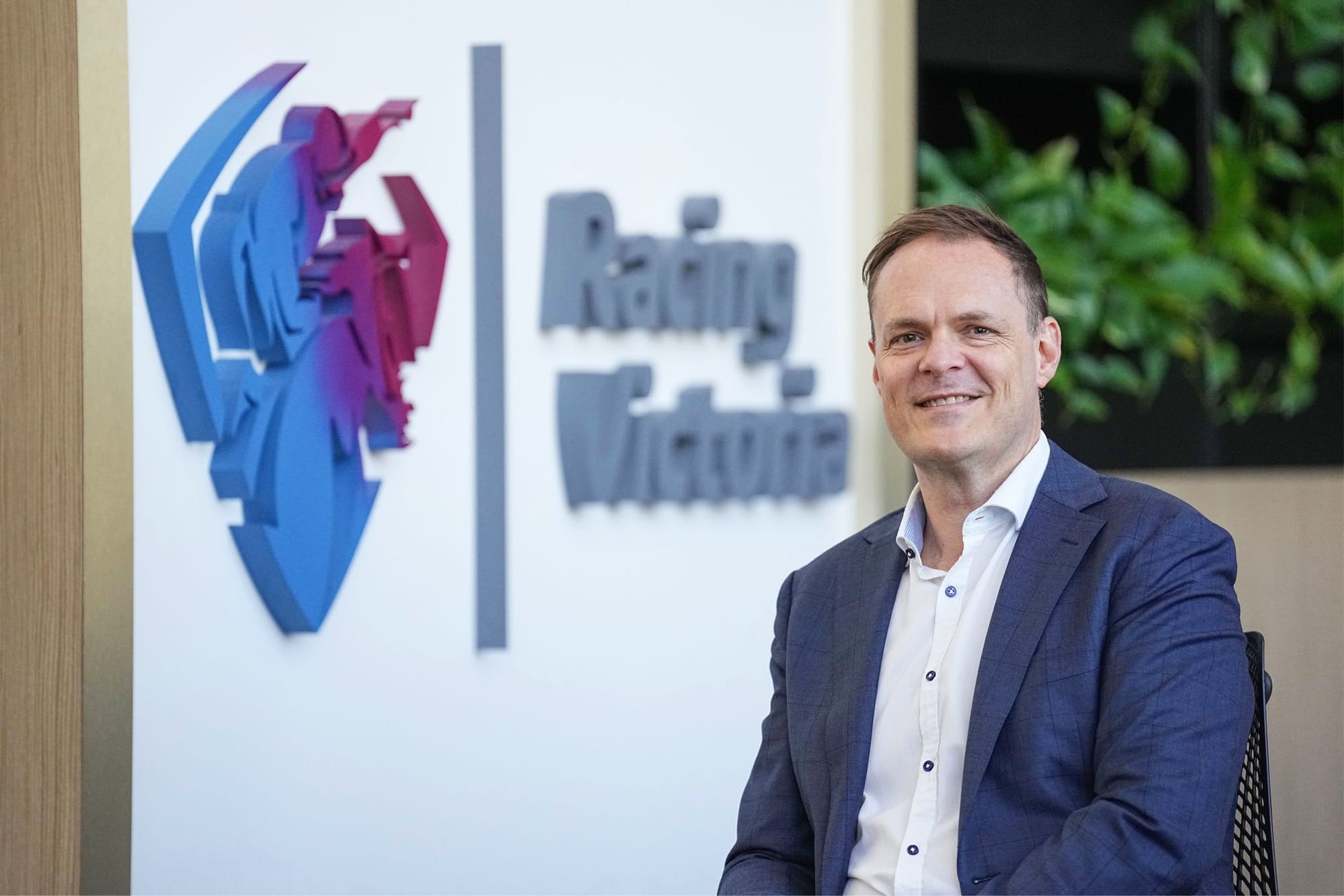
However, previously it is arguable that the racing industry has been caught short on this issue.
Morrison was not in the CEO chair when a key federal government committee heard from stakeholders in April 2023, and he admits that the fact not one racing administrator appeared before that ‘You Win Some, You Lose More’ committee was a mis-step.
“We were a little bit late from a coordinated perspective. Racing Victoria was very active, but that was in lieu of there not being an effective Racing Australia to act as a national advocacy body,” Morrison said.
“That’s my great hope right now. The changes that we’re making through other aspects of our relationship with Peter in NSW and others around the Racing Australia table will lead to the establishment of Racing Australia as an effective advocacy body on a variety of matters of national significance.”
The entreaty to Racing NSW and Peter V’landys and the bid to revive a meaningful Racing Australia have been Morrison’s most public achievements in his first month in the job. Certain aspects of the media seem obsessed with the prospect of a peace deal.
“I think we’ve probably lost our way a little bit there. I’d like to think that we can get racing back up there alongside sports like the AFL, where we’re really celebrating the significance of our sport, the heroes, the champions of the sport, telling our great stories” – Aaron Morrison
He is not the first Racing Victoria CEO to speak of a new understanding with a counterpart in Druitt Street, but, on face value, any conversation at all would be an improvement on what came before.
“I can’t speak for others and how they have felt, but I think the approach is a bit different. I haven’t come in there to be adversarial and aggressive. I understand what Peter has done, is trying to do, and how he’s trying to represent his stakeholders and his constituents,” Morrison said.
“It’s perfectly reasonable for him to do it. I don’t necessarily agree with the way he’s gone about certain things, but there’s almost no point going over that old ground. It’s more important to work out how we are going to actually move forwards.”
Morrison touches on those key themes again, ‘collaborative’ and ‘transparent’. These aren’t words readily associated with the previously toxic relationship between the two racing states, who are still in a legal dispute over The Pattern.
“We want to move forward, so he seems to have embraced that. Now, the proof will be in the pudding in terms of outcomes, but I do feel that we’re making some change and some difference. And I think the other stakeholders in Australia are encouraged by the changes that we’re making,” Morrison said.
He sees Racing Australia as a crucial catalyst in the changing relationship between the states.
“There’s a lot of things in the regulatory space that are important that we have some coordination and national advocacy around,” he said.
“But on top of that, there’s things like the skilled worker shortage issues and how to advocate around skilled worker visas, immigration, quarantine.
“I think there’s a major role for Racing Australia to play, but it requires the PRAs to be working in the same direction. Now, I think that in the last couple of weeks, and I’m pleased that we’ve had a large role to play in this, we’ve started to drive towards that outcome.
“I think we all agree that Racing Australia needs to be more effective as an advocacy group, you know, as an administrator, as a technology systems and platform provider.”
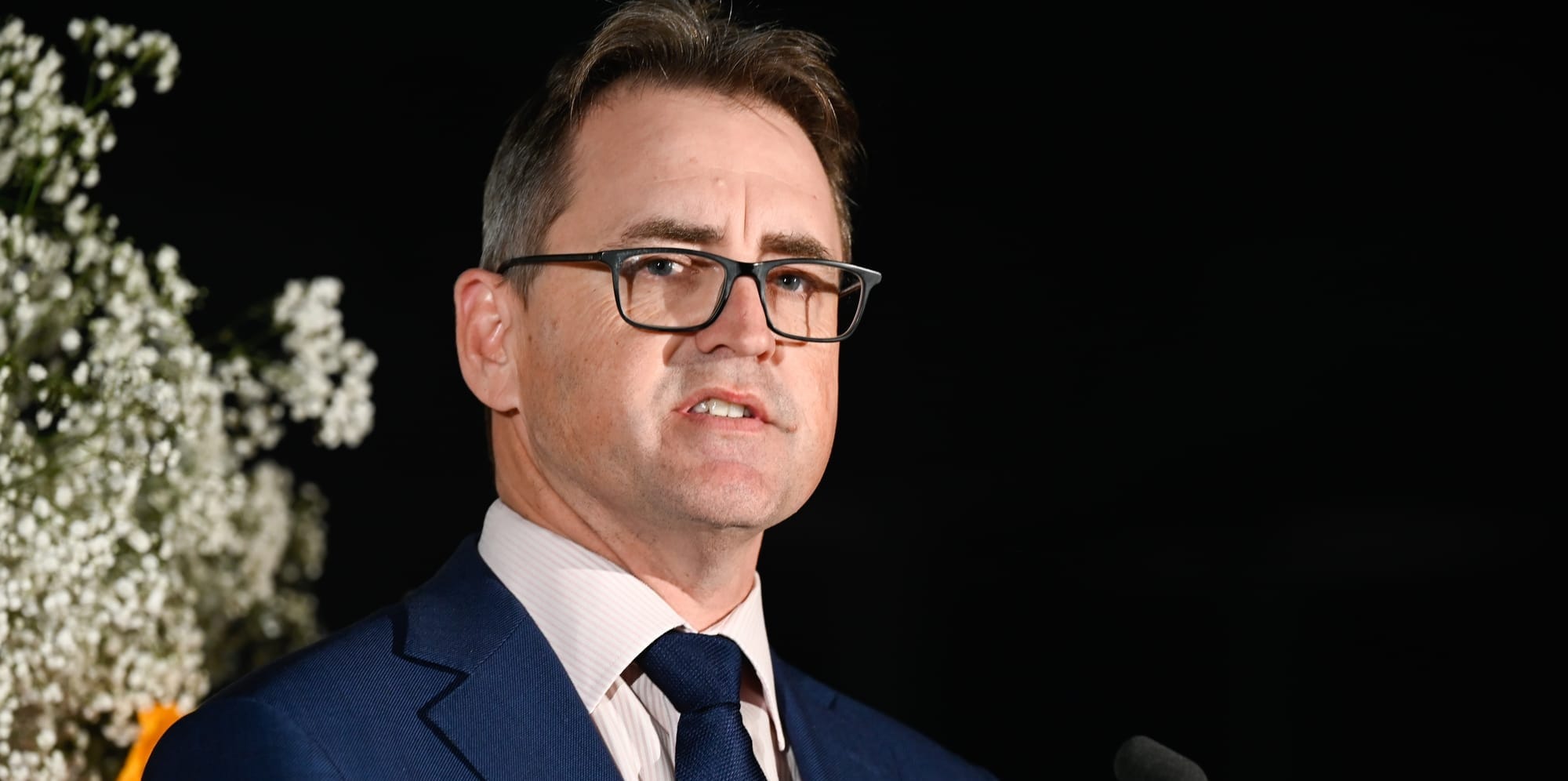
While interstate matters court headlines, so to do the political and commercial challenge of Victoria’s three metropolitan race clubs.
The Melbourne Racing Club is going through an ugly board spat centered around its proposed Master Plan, while the VRC is facing financial challenges as new CEO Kylie Rogers gets her feet under the desk, and Moonee Valley plots a generational redevelopment.
“We’re dealing with each of the clubs on an individual basis now in terms of club funding arrangements, in a way that recognises each of their specific circumstances and working with them on their particular challenges,” the Racing Victoria CEO said.
“I think, by and large, they’ve got the right processes and structures in place. The MRC’s is one that’s obviously a more challenging situation.
“That process has to play out, and then that committee has got some pretty significant decisions to make on some big issues. But we’ll be there to support them through that when it’s appropriate.”
Asked specifically if the Victorian industry can sustain three metropolitan race clubs as well as the number of country racecourses and training facilities in a declining economic environment, Morrison is realistic.
“In providing the funding to the industry, the government’s effectively put us on notice that there’s not going to be any further funding support. This is what you’ll get, and you guys need to start cutting your cloth accordingly,” he said.
“We’re certainly fighting harder and harder for those dollars, and we’ve got to make sure that those dollars continue to go as far as they can. And there’s lots of mouths to feed in the Victorian structure.
“Yes, we’ve got 64 clubs, we’ve got multiple metro entities that we provide funding to. I think the industry understands that we’ve got to review the structure of the model.”
However, he won’t be mandating club mergers, saying that “if two clubs were to come to us and say, ‘you know, we would like to merge’, then RV would certainly look at supporting it.”
This is exactly what happened when Pakenham and Cranbourne came together under the Southside banner, something Morrison says has been a success.
“I’m certainly seeing evidence that the club committees are starting to look more seriously at this. Those types of opportunities don’t necessarily need to disrupt club identity and committee structures,” he said.
A review of Racing Victoria’s media business is also taking place, with a view to not only making the operation more cost efficient, but more effective in its core task of promoting racing.
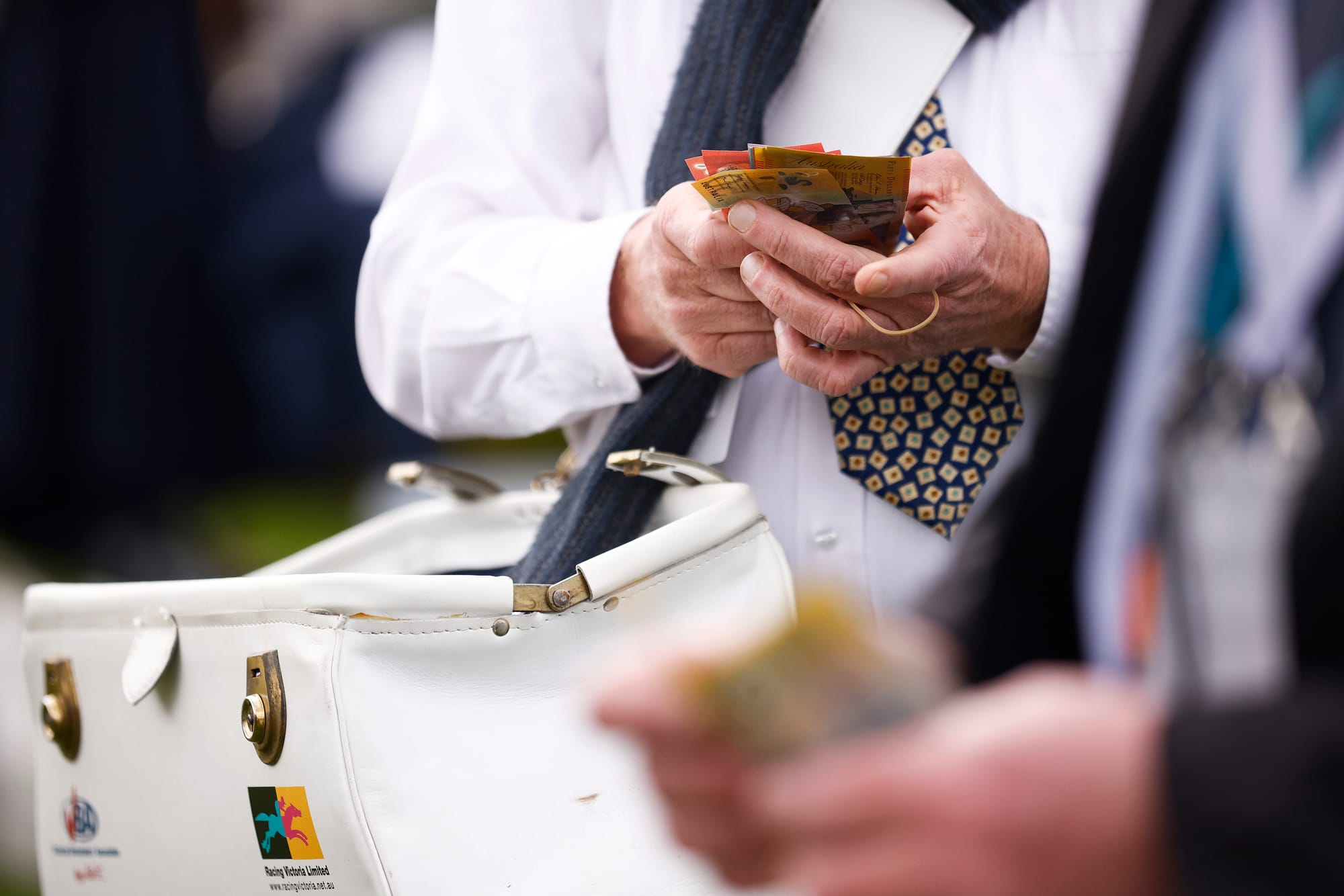
“I think we’ve created some tremendous assets which I think we can leverage far more than we are,” Morrison, who has served on the Racing.com board for several years, said.
“Racing.com does a great job of covering live race day coverage and promoting Victorian racing and it should continue to do that and deliver outcomes for our corporate and commercial partners.
“But it’s also a massive engine that creates lots of content and could create different kinds of content for different audiences and we could work that much harder and I think could become the centre of a new sort of marketing promotional focus for the whole industry.
“It could extend beyond the tram tracks of Racing.com as a business. We could be producing content and using those assets to elevate the promotion of the sport to a far greater audience.”

